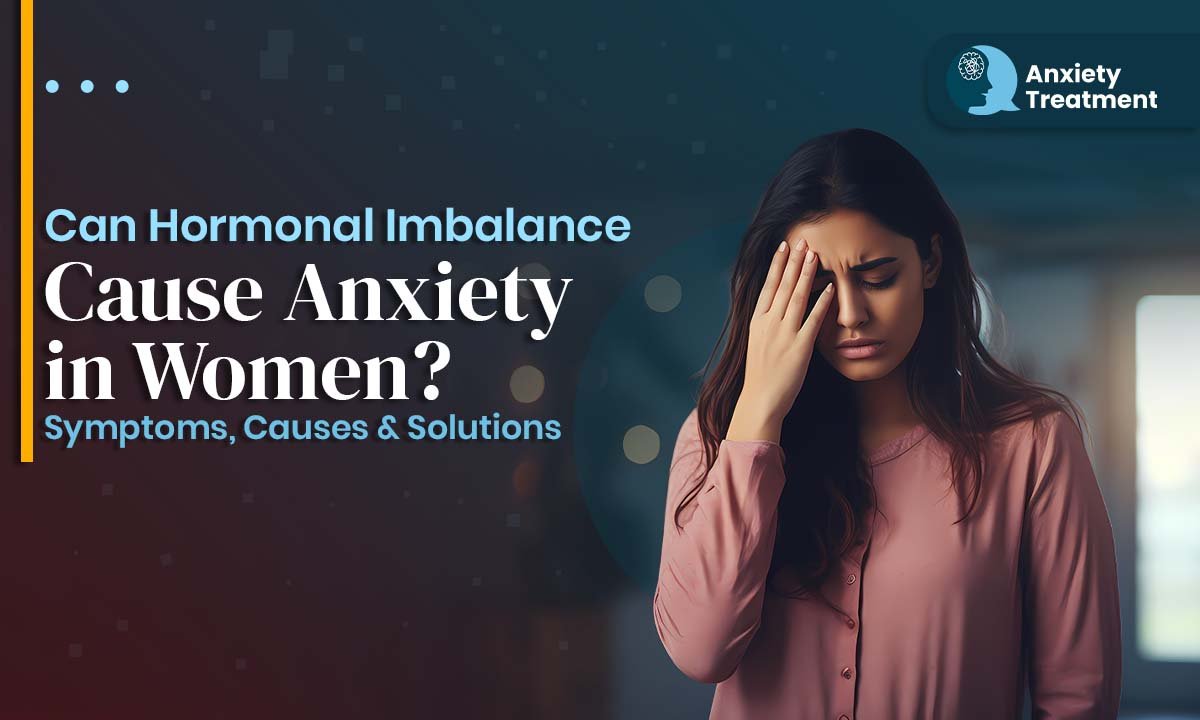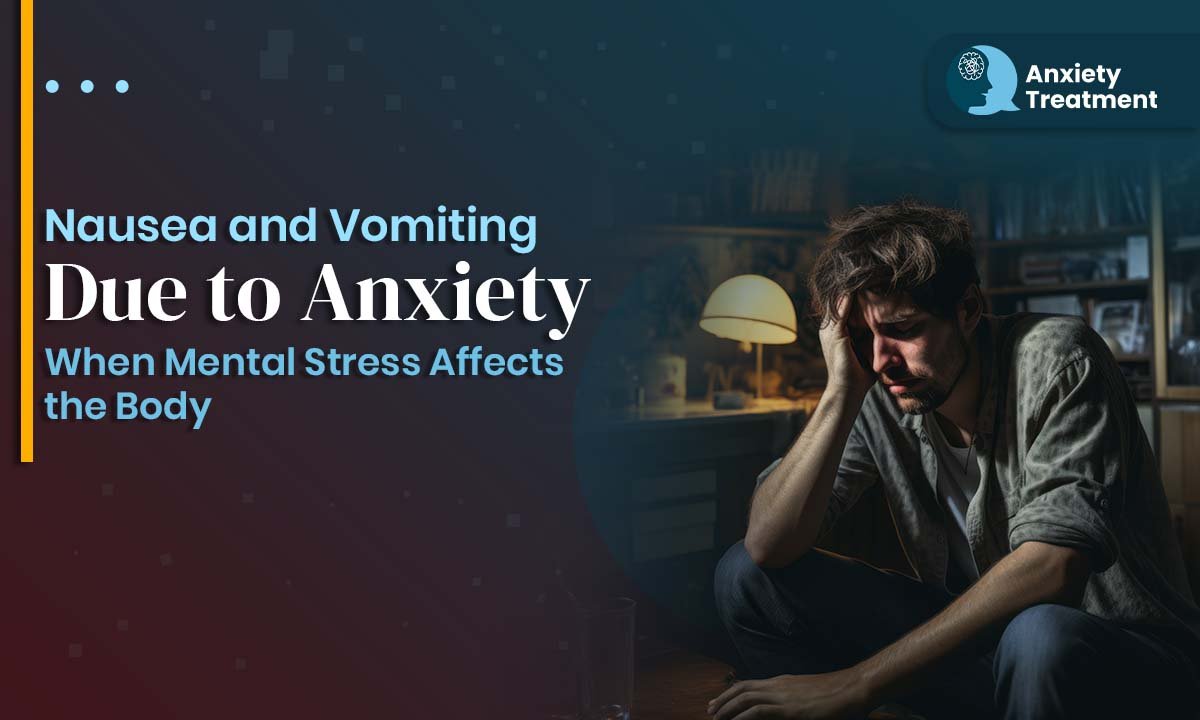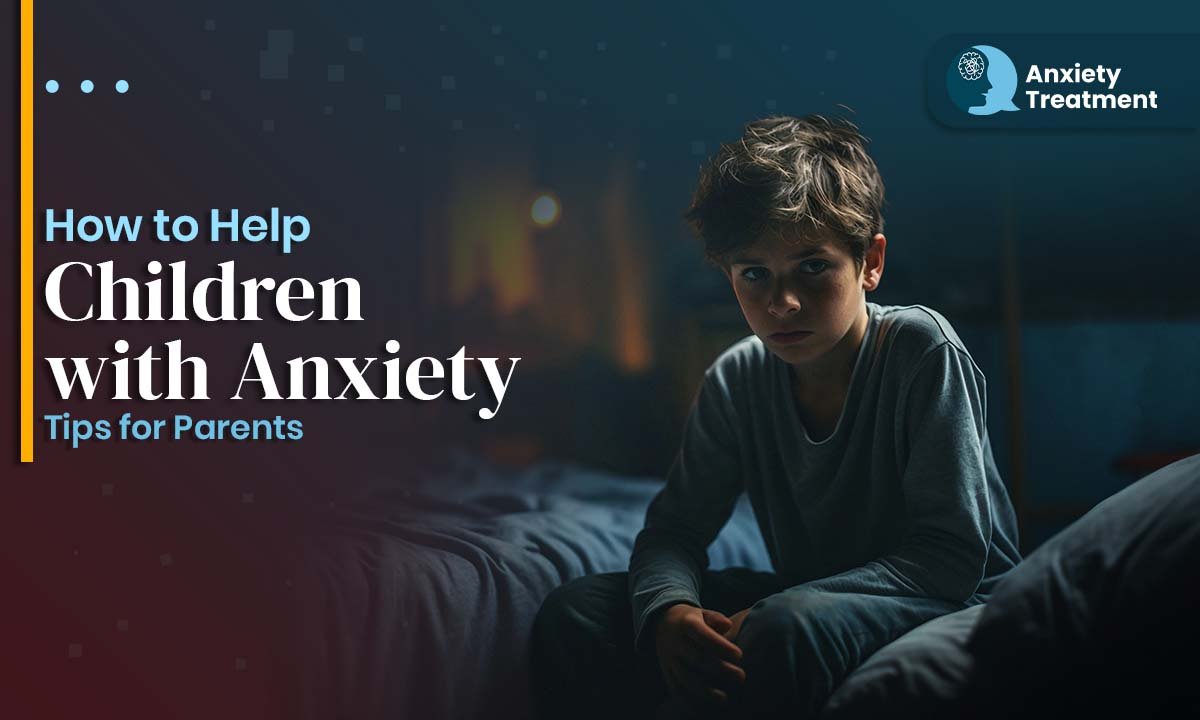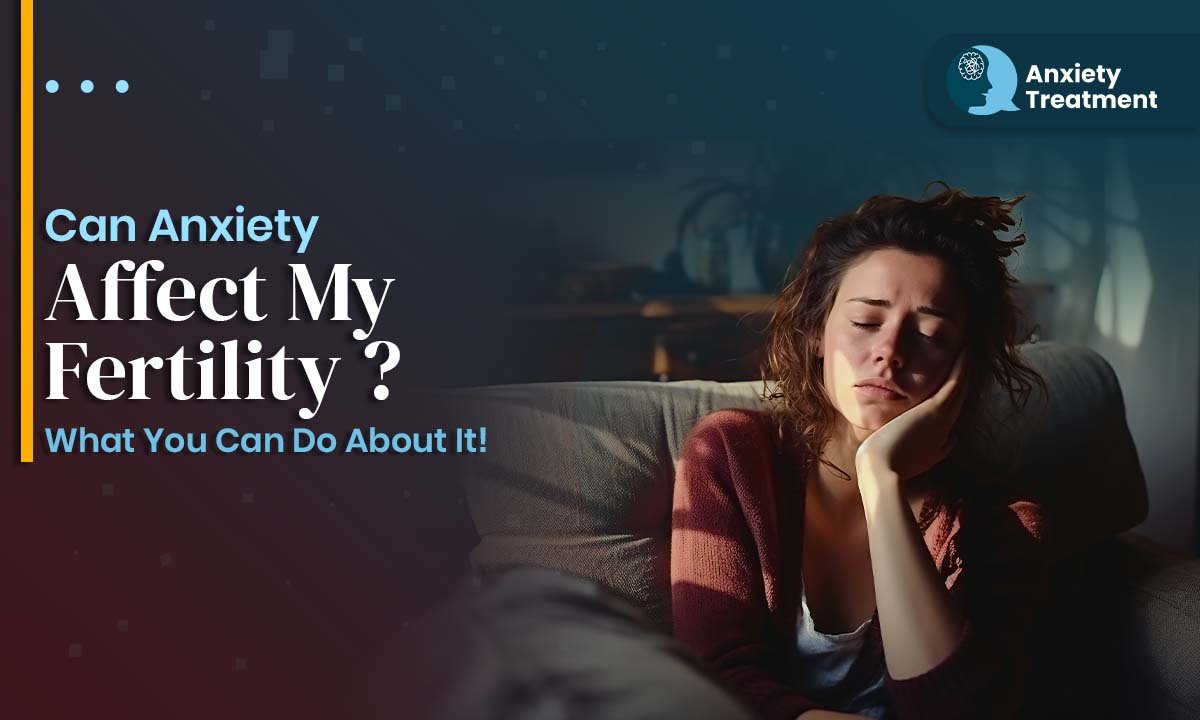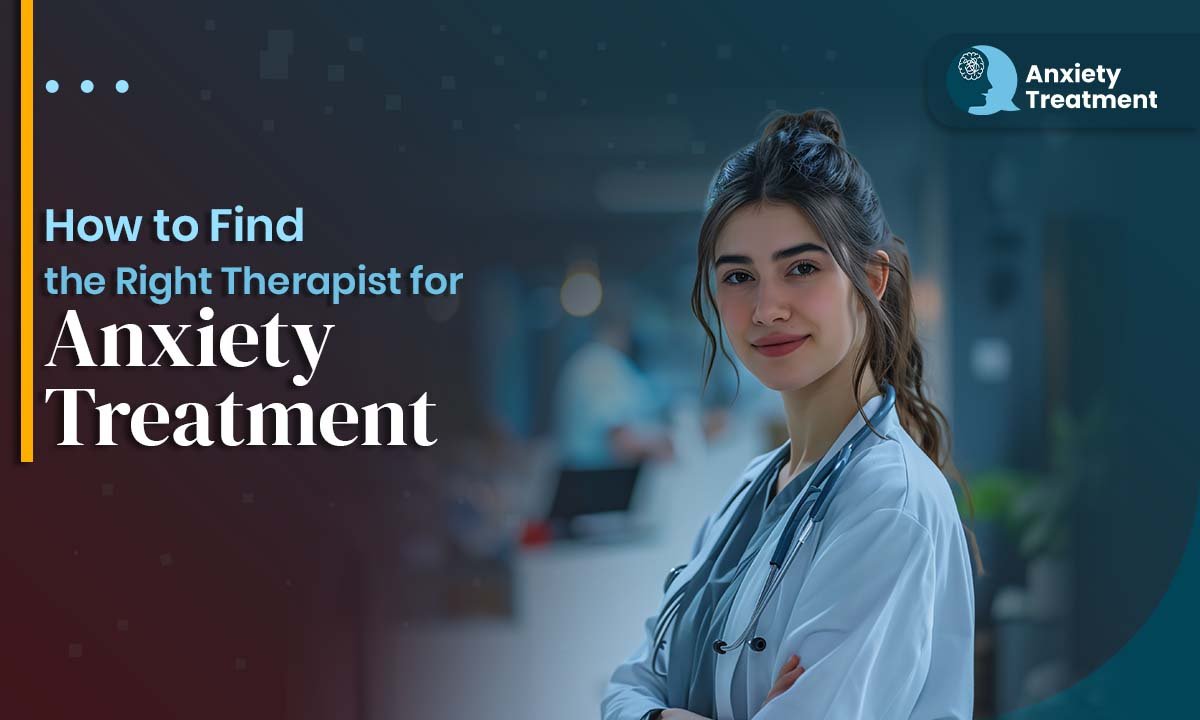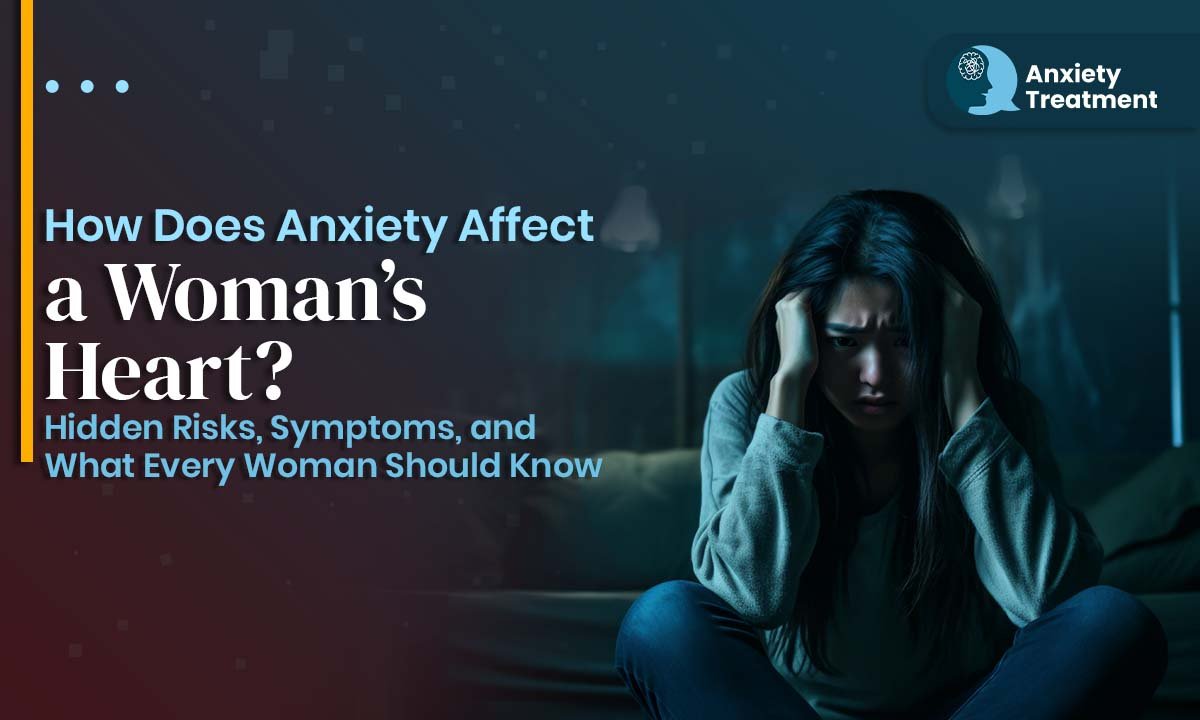Hormonal fluctuations are a natural part of every woman’s life. From puberty and menstruation to pregnancy and menopause, a woman’s hormones constantly shift. But what happens when these changes go beyond the normal range and start affecting mental well-being? One of the most commonly asked questions is: can hormonal imbalance cause anxiety in women? The answer is yes and understanding how and why it happens is essential to finding relief.
How Hormonal Imbalance Affects Anxiety in Women?
Hormones play a crucial role in regulating not just physical processes but also emotional and mental states.A disruption in this delicate hormonal balance can directly affect neurotransmitters in the brain like serotonin and dopamine, which regulate mood.
Key Hormones That Influence Anxiety
- Estrogen: This hormone supports the production of serotonin. A drop in estrogen levels, especially during the menstrual cycle or menopause, can lead to mood swings and increased anxiety.
- Progesterone: Known for its calming effects, progesterone helps regulate sleep and reduce stress. Low levels may lead to irritability, restlessness, and anxiety.
- Cortisol:Cortisol, commonly known as the "stress hormone, is produced by the body in response to physical or emotional stress
- Thyroid Hormones: An underactive or overactive thyroid can trigger symptoms similar to anxiety such as rapid heartbeat, nervousness, and fatigue.
Common Symptoms of Anxiety in Women Due to Hormonal Imbalance
Recognizing the signs is the first step toward managing anxiety caused by hormonal shifts. Here are some key symptoms of anxiety in women linked to hormone changes:
- Persistent worry or racing thoughts
- Panic attacks or increased heart rate
- Insomnia or disrupted sleep patterns
- Mood swings and irritability
- Difficulty concentrating
- Fatigue without physical exertion
- Sensitivity to stress or emotional reactions
These symptoms often worsen during PMS, after childbirth (postpartum), or during perimenopause and menopause indicating a clear connection between anxiety and estrogen levels and other hormonal shifts.
Hormonal Imbalance and Anxiety: When to Be Concerned
Mild anxiety now and then can be normal. However, if your symptoms are ongoing, interfere with daily life, or seem to worsen around hormonal changes, it could indicate a deeper issue with hormone regulation.
If you're experiencing repeated episodes of emotional distress that coincide with your menstrual cycle, pregnancy, or menopause, it’s worth discussing hormonal imbalance and anxiety with your doctor or a mental health professional.
What Causes Hormonal Anxiety in Women?
Menstrual Cycle Changes
Fluctuations in estrogen and progesterone before periods (especially in PMS or PMDD) can lead to mood instability and anxiety.
Pregnancy & Postpartum
After delivery, both estrogen and progesterone levels drop sharply, triggering anxiety, restlessness, and in some cases, postpartum depression or anxiety.
Perimenopause & Menopause
As women approach menopause, hormone levels fluctuate unpredictably, leading to increased anxiety, hot flashes, and sleep issues.
Thyroid Disorders
Hypothyroidism or hyperthyroidism can mimic anxiety symptoms and is often overlooked as a root cause.
Chronic Stress
Ongoing stress elevates cortisol levels and disturbs hormonal equilibrium, which may further fuel anxiety.
Effective Hormonal Anxiety Treatment Options
The good news is, hormonal anxiety is treatable. Managing the root cause hormonal imbalance along with lifestyle changes and therapeutic support can offer long-term relief.
1. Medical Support
- Hormone Replacement Therapy (HRT): Often used in perimenopause or menopause to stabilize estrogen and progesterone levels.
- Thyroid Medications: If thyroid dysfunction is detected, regulated hormone therapy can restore balance.
- Birth Control Pills: Sometimes prescribed to regulate menstrual hormones and reduce mood swings.
2. Therapy
- Cognitive Behavioral Therapy (CBT): One of the most effective talk therapies for managing anxiety.
- Mindfulness-Based Therapy: Helps develop awareness and control over emotional triggers.
3. Lifestyle Changes
- Regular Exercise: Boosts serotonin levels and helps regulate cortisol.
- Balanced Diet: Nutrients like magnesium, B-complex vitamins, and omega-3s help support hormonal health.
- Sleep Hygiene: Adequate, quality sleep is essential to hormone regulation.
- Stress Management: Yoga, meditation, journaling, and deep-breathing exercises help lower anxiety naturally.
By integrating medical care with holistic approaches, many women can successfully manage the effects of progesterone and anxiety or imbalanced estrogen without long-term medication.
When to See a Doctor?
If anxiety is interfering with your work, relationships, or ability to enjoy life — especially during hormonal transitions it's time to seek professional guidance. Blood tests can identify imbalances in thyroid hormones, cortisol, estrogen, and progesterone, helping create a customized treatment plan.
Conclusion
Can hormonal imbalance cause anxiety in women? Absolutely. But the encouraging truth is: you don’t have to live with it forever. With the right awareness, support, and treatment, you can regain emotional balance and live with more peace and confidence. If you’re noticing signs of hormonal anxiety, listen to your body and it's trying to tell you something. Reach out, get tested, and take control of your well-being.

